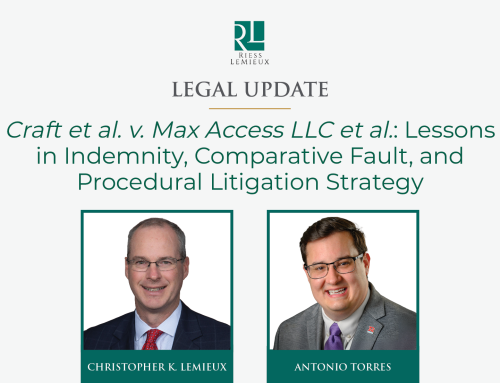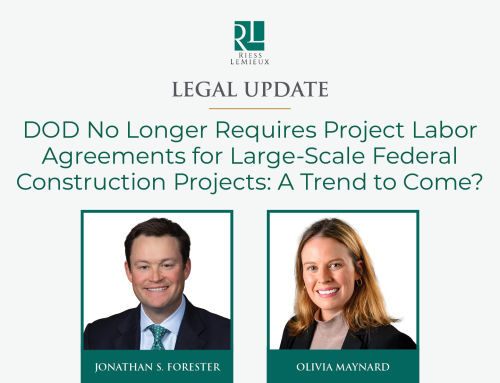The United States Court of Appeals for the Fifth Circuit recently considered the burden required to defeat summary judgment on a claim brought under the Age Discrimination in Employment Act (ADEA), 29 U.S.C. §§ 621-34. In Koteras v. Briggs Equip., Inc., No. 20-50482, 2021 WL 1808596 (5th Cir. May 5, 2021), the Fifth Circuit determined that the plaintiff must address each of the defendant’s articulated, legitimate, non-discriminatory reasons for his demotion in order to create a genuine dispute as to whether the reason was pretextual and defeat the motion for summary judgment.
The court noted that an ADEA plaintiff must show that his age was the but-for cause of his employer’s adverse action. And, as was the case in Koteras, when the plaintiff attempts to satisfy that burden with circumstantial evidence, the McDonnel Douglas burden-shifting framework applies. McDonnel Douglas Corp. v. Green, 411 U.S. 792, 802-04 (1973). Under this framework, the plaintiff must first establish a prima facie case of age discrimination. The burden then shifts to the employer to offer a legitimate, non-discriminatory reason for the adverse action. The plaintiff must then demonstrate that “each reason was a pretext for discrimination.” Id. at 391 n.2.
The parties here did not dispute that Korteras established a prima facie case of age discrimination. In response, Briggs offered two legitimate, non-discriminatory reasons for Koteras’s demotion: (1) organizational restructuring resulting in job elimination; and (2) Koteras’s poor job performance. The burden then shifted to Koteras to produce sufficient evidence to create a genuine dispute as to whether each of Briggs’s reasons for his demotion were pretexts for age discrimination. Koteras’s response to Briggs’s motion for summary judgment only challenged one of Briggs’s legitimate, non-discriminatory reasons for his demotion—his poor job performance. Koteras’s response to Briggs’s motion for summary judgment did not contain any information as to why the reorganization reason presented by Briggs was pretextual. The court found that because Koteras failed to address Briggs’s reorganization reason in his response, he cannot demonstrate that “each reason was a pretext for discrimination.” Salazar, 982 F.3d at 391 n.2 (emphasis added). Accordingly, the court held that because Koteras failed to address one of Briggs’s legitimate, non-discriminatory reasons for his demotion, he failed to create a genuine dispute as to whether that reason was pretextual. This decision may be helpful to defendants seeking early and favorable disposition of age discrimination cases in which adverse employment action is based on more than one reason.



